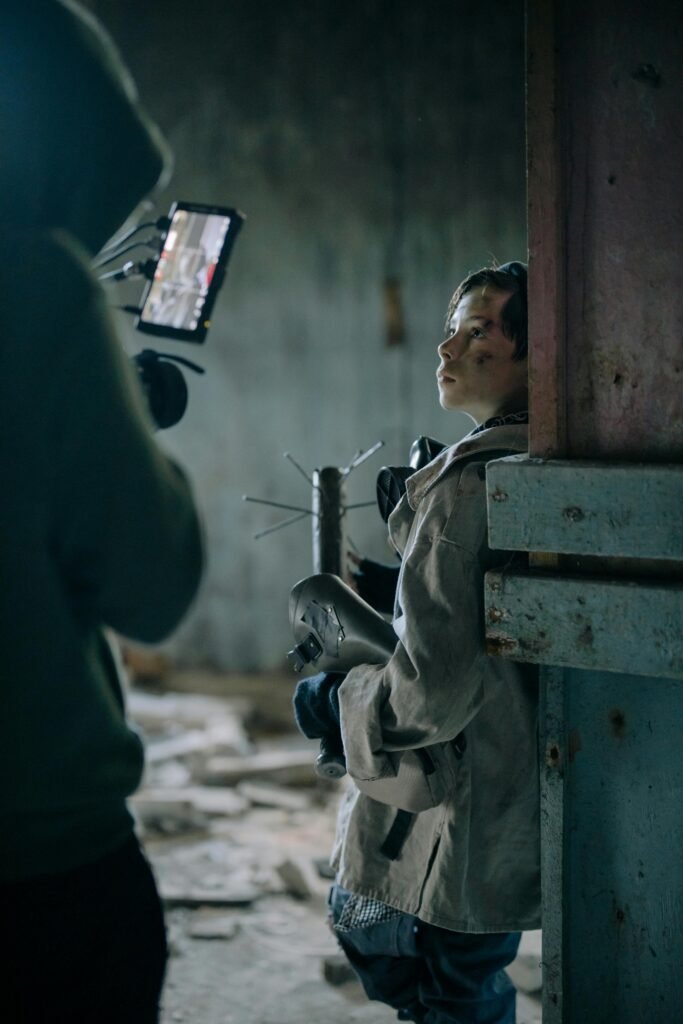Photo Credit (Freepik)
First things first, let’s agree on what a dystopian film is. Opposite of utopia is the word dystopia. A dystopia is a state or nation in which everything has gone horribly wrong, in contrast to a utopia, which is an idealized version of our real world. Films with dystopian themes are inherently speculative and typically fall within the science fiction category because of this. Typical settings for these films include totalitarian regimes or nations that have experienced severe environmental or societal degradation.
One of the latest film trends, at least among teenagers, appears to be dystopian films. Films such as Divergent and, more recently, The Maze Runner followed in the footsteps of The Hunger Games, which achieved phenomenal financial success. However, you won’t see any of those films here. Actually, they may be evidence that our own society is dystopian, rather than excellent instances of dystopian films.
This is a list of twenty of the best dystopian movies of all time. The list might have easily included thirty titles, but I choose to limit myself to twenty in an effort to maintain the selected entries’ high grade; hence, it is not an exhaustive summary of the best dystopian films ever.
The following films were considered but ultimately did not make the cut: Code46, Alphaville, Escape From New York, Robocop, Strange Days, and Silent Running. In addition to many more, these should be watched by everyone with a true love for the genre. To that end, each of the twenty movies showcased here is a superb representation of the genre’s finest work.
Twenty. The year 1884 In 1984, Michael Radford
Let’s begin with 1984, the most famous dystopian totalitarian novel of all time. Directed by Michael Radford and starring John Hurt and Richard Burton (in his last film role), this second film adaptation of George Orwell’s infamous novel of the same name—which coined the term “Big Brother”—was released in 1957, coinciding with the year of the title.
In 1984, the film takes place in London, the capital of Airstrip One (previously Britain), a little totalitarian state within Oceania. An official of the Ministry of Truth, Winston Smith (Hurt) is tasked with continually rewriting history in accordance with the Party’s and its all-pervasive leader Big Brother’s vision. Winston writes down his innermost thoughts in a diary even though he is subject to continual observation and free thought is strictly outlawed.
It gets worse: he meets Julia (Suzanna Hamilton), who is also an employee of the Ministry of Truth, and they begin an illicit romance, which is also outlawed by the Party. Their brief romance abruptly ends when they are both apprehended by the Thought Police. Winston is subsequently taken to the Ministry of Love for questioning and rehabilitation by his old friend O’Brien (Burton), who escorts him to the dreaded Room 101, where individuals endure torture by being confronted with their deepest, darkest secrets.
In keeping with its inspiration, 1984 is a dark and foreboding film. The future is meant to appear particularly dull, washed-out, and grey, which effectively portrays the impersonality and pervasiveness of the Party. In fact, the film’s overall gloomy tone makes it difficult to sit through, which is a shame because the original was so much better.
John Hurt has a superb performance as Winston Smith, whose features brilliantly reflect his mentally tormented lifelong struggle, while Burton gives a commendable performance as the Party’s public face, delivering a genuinely terrifying performance. Both actors were named Best Actor in the Valladolid Festival and Fantasporto Film Festival, respectively, with Hurt taking home the honors.
Kanji Fukasaku (2000) titled Battle Royale (19)
Battle Royale, based on the book by Koushun Takami of the same name, is a darkly comedic action film set in a dystopian future Japan.
The country’s youth have grown increasingly defiant and rebellious in response to the worsening economy and the resulting mass unemployment, putting Japan on the brink of anarchy. Consequently, the government has taken extreme steps and instituted the Millennial Reform School Act, a game that is broadcast nationwide. In this game, randomly selected high school classes are transferred to an isolated island to compete against each other until only one class remains.
The plot revolves around Kitano’s (Beat Takeshi) chosen class and its member Shuya Nanahara, whose father had taken his own life. Kitano is a deranged instructor.
You may wish to avoid this film if you have a strong aversion to violent content. Here, the students wear explosive collars that decapitate them if they venture outside of the designated playing area, and an on-screen counter keeps tabs on how many of them are alive; it’s basically the Japanese exploitation version of The Hunger Games (though Battle Royale came out a decade earlier).
However, if you think this could be something you would enjoy, you’re in for a treat because the film is also surprisingly amusing. Battle Royale is a very twisted, dark, and unsettling film that combines elements of exploitation and satire.
Jeffret and Marc Caro’s 1995 work, City of Lost Children, is number eighteen.
A dark science fiction/fantasy picture starring Ron Perlman, The City of Lost Children is the second feature film directed by Jean-Pierre Jeunet and Marc Caro, following their breakthrough debut Delicatessen.
A deranged scientist residing on an offshore rig, Krank (Daniel Emilfork), is unable to dream. On the other hand, he abducts children from a neighboring port town and uses them to power his dream-stealing machine. But he doesn’t anticipate his older brother, the gigantic One, to come searching for Denree, a young child played by Joseph Lucien, when he abducts him.
Upon reaching the rig, One forms an alliance with Miette, a young orphan played by Judith Vittet, who is a member of a thieving guild comprised entirely of orphans. Along their journey to Krank’s lair, they come across a couple of identical twins, a communicative brain housed in a fish tank, and a swarm of clones—all portrayed by Dominique Pinon, a regular at Jeunet.
Jeunet and Caro’s second movie was a visually striking and innovative dystopian fantasy universe that combined aspects of steampunk (a phrase that had not yet gained widespread use), freak shows, and gloomy fairy tales. Although the film’s narrative was heavily criticized by critics upon its premiere, its production design, costumes, photography, and limitless creativity are undeniably its strongest features. It likely didn’t help that Ron Perlman, who is fluent in English but not French, had to learn his lines phonetically.
But the film’s genuinely distinctive style and tone helped it acquire a cult following almost instantly, and that following has only increased with the years. At Cannes, The City of Lost Children was up for the Palme d’Or, and in France, it was nominated for four César Awards—Best Music, Cinematography, Costume Design, and Production Design—winning just the latter.
- Richard Fleischer’s Soylent Green (1973)
The 1973 Richard Fleischer science fiction picture Soylent Green is positioned in a dystopian future and is loosely inspired on Harry Harrison’s book Make Room! Make Room!.
By 2022, the globe has become a hotbed of ecological disaster as a result of both human population growth and the greenhouse effect. Soylent Green, the newest product from the Soylent Corporation, provides the majority of the nutrients during this food shortage. In this setting, Charlton Heston’s detective Frank Thorn is tasked with uncovering the truth behind the death of a rich businessman who happened to have served on the board of the Soylent Corporation.
He and his roommate and buddy “Sol” Roth (Edward G. Robinson) begin to piece together the case, but the governor decides to close it since they’ve uncovered too much evidence of a conspiracy. Soylent Green’s real nature is revealed to Thorn’s friend Roth, who continues to investigate.
Although the film’s graphics haven’t held up so well, Soylent Green’s plot is powerful and a great example of the socially conscious science fiction of the 1970s.
The euthanasia scene he portrays is all the more poignant because it was the final performance for cinematic icon Edward G. Robinson, who passed away just 12 days after filming wrapped. If you enjoy science fiction with strong social concerns, then you absolutely must watch Soylent Green, despite the fact that movie isn’t perfect.
- Orson Welles’s The Trial (1962)
Orson Welles directed the film adaptation of Franz Kafka’s novel The Trial, which is often considered to be the finest film adaptation of a work by the author.
One morning, a group of guys who won’t identify themselves rouse Joseph K (Anthony Perkins) and place him under open custody for a crime that is never brought up in the film. From that point on, Josef K. endeavors to navigate an apparently infinite and entirely irrational bureaucracy in his pursuit of justice and explanations.
While on the road, he chats with a neighbor (Jeanne Moreau), a lawyer (Orson Welles), the mistress of the lawyer (Romy Schneider), and the wife of a courtroom guard (Elsa Martinelli). But no matter what he says, nothing helps, and it’s as if the entire world is conspiring to push him over the edge of sanity. Without ever learning the true nature of his accusations, Josef K is ultimately condemned to death.
All of The Trial’s strengths—its labyrinthine structure, psychological brutality, maddening frustration, and genuine Kafkaesque elements—are also its weaknesses. Although seeing this video can make you question what the fuck you just saw, it almost feels like that’s the point—to make you feel as helpless and frustrated as Josef K.
The photography and scenery of this magnificent black-and-white picture do an excellent job of communicating its concepts, and Anthony Perkins gives a superb performance as the guy whose efforts are ultimately in vain. The film was nominated for the Golden Lion at the Venice Film Festival and won the Critics Award for Best Film by the French Syndicate of Cinema Critics, despite the fact that critics mostly ignored it upon its debut. Later on, the picture became very popular with some people, but there are many who will insist that it’s more about the style than the substance. I mean, it could be true, but I guess that’s basically the idea.
- Terry Gilliam’s Twelve Monkeys (1995)
Terry Gilliam’s 12 Monkeys has Bruce Willis, Madeleine Stowe, and Brad Pitt and is based on Chris Marker’s La Jetée, one of the best short films of all time (which was also on my post-apocalyptic list, so it didn’t make the cut). Included on this list is Brazil, the first of Gilliam’s dystopian trilogy, which also includes The Zero Theorem, the most recent installment.
Time travel is the main idea in 12 Monkeys. The remaining humans in a future civilization have no choice but to endure the deadly air in underground caverns after a devastating plague killed out the majority of the planet’s inhabitants. Here, Williamis plays convicted criminal James Cole, who is offered clemency in exchange for a perilous mission: to go back in time and get a virus sample while also learning more about the 12 Monkeys, a terrorist group that was involved in the virus’s spread.
First, he gets sent back in time to 1990 by accident. In a mental facility, he meets Dr. Railly, played by Stowe, and Jeffrey Goines, the insane son of a virologist, played by Brad Pitt. He is sent back to 2035 and then dispatched on another mission, this time to World War I. Eventually, he reaches 1996, the year he was originally meant to be in. It is in 1996 that he will discover whether Goines and his organization are responsible for the viral epidemic.
Terry Gilliam’s most financially successful film to date, 12 Monkeys, is a complexly plotted time-travel picture about dreams, insanity, and a world in shambles. Thanks to Gilliam’s casting choices, the film features strong performances from all of the actors. Willis gives a performance to remember, while Pitt shows, maybe for the first time (along with Seven, released that year), that he was more than just a gorgeous face.
Despite failing to live up to its outstanding inspiration, the outrageous and entertaining science fiction film 12 Monkeys pulls itself together. Brad Pitt was nominated for Best Supporting Actor, one of the film’s two Oscar nominations. Although he was not the lucky winner, he did take home the same trophy in the same category at that year’s Golden Globes.





Leave a Reply